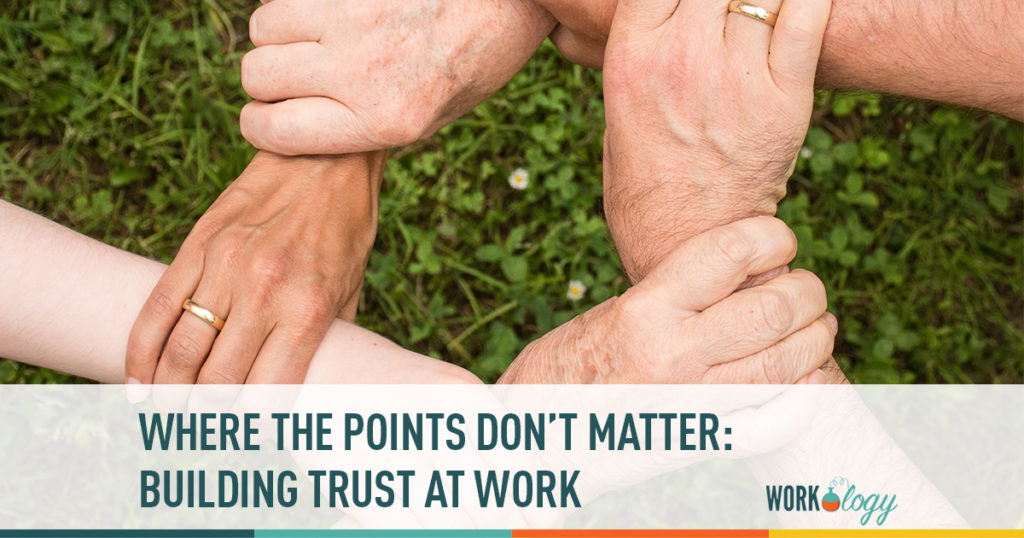Back in the late 90s/early 2000s, I used to love watching Whose Line is it Anyway? The tagline was “Where the rules are made up and the points don’t matter.” Starting with a simple prompt, hilarity ensues as guests begin to improvise what comes next (which, the episode with Robin Williams? Find it and watch. Your sides will hurt from laughter). Ever feel like this is your employee evaluation process?
I certainly do and have been looking for ways to make the process easier and, more importantly, more meaningful for all involved.
How Employee Evaluations Started
In my research, I recently listened to a podcast from Manager Tools that discussed the beginnings of what we now know as the employee evaluation. It was an interesting history, as they shared that evaluations as we know them today weren’t meant to be shared with the employee. It was a tool for the Army to use in succession planning: the information was shared with the general and used in case someone was killed in battle and a battlefield promotion was needed. The officers were already having one-on-one conversations with their direct reports about performance, so they didn’t need to use this tool to have the conversation.
After WWII, as large businesses began to form, they looked to the military as a guide for efficiently organizing huge workforces. The part that didn’t come along, however, was those on-going conversations between supervisor and employee about performance. And so, businesses began to use a succession planning tool created by the Army, but turned it into a communication tool by sharing those evaluations with the employee. But, without that on-going conversation, the evaluation ceased to become a tool for succession planning and turned into a tool for, well, let’s be honest, ensuring the supervisor has spoken to the employee about their performance at least once a year. No wonder we dread it; no wonder EVERYONE dreads the performance review.
So, here we are, in a time when everyone is attempting to find the “right tool” to make the employee evaluation less painful — because it’s not the evaluation that needs improvement, it’s the tool. And some are just eliminating the performance evaluation all together. But do either of those really get to the heart of the issue? I don’t think the issue is the tool, but rather helping supervisors to have meaningful conversations with their staff around performance. And the only way to do that is to build trust.
How to Build Trust Between Employer and Employee
Trust, built on a daily basis, allows the supervisor and their employees to have meaningful conversations around performance without the dread that comes with that annual performance review. Regular conversations make that “chore” easier – we all know doing a little each day makes a big job smaller. That trust then can extend to Human Resources, who also dread the evaluation time of year because they are reading all of those reviews to ensure that the evaluations are “fair” and “balanced,” giving feedback to the supervisor on how to write the evaluation, but little feedback on having the conversation with the employee.
How do we build trust? Little by little, each and every day. We all know this – it’s not rocket science, it’s building a relationship. And talking with our employees when an issue happens, good or bad, builds that trust. You can’t just talk to them when they screw up (and definitely do not wait on that conversation – it’s pretty crappy to get into the review time with your supervisor and hear them say “remember that time 6 months ago when you …). And don’t let your employees start thinking that no news is good news. You don’t want them to get that pit in their stomach when you say “Hey, could I see you in my office?”
Good evaluations aren’t about being sure you grade on the bell curve (and who the hell decided THAT was a good idea???), or even writing them in such a way that the lawyers in a wrongful termination case can’t poke holes in your words. Good evaluations should be a reflection of a good relationship between the supervisor and the employee, which HR can help facilitate.
I plan to dive deeper into this for future posts, looking at how you can use your current tools to help supervisors build their relationship and get to a place where the points don’t matter.









